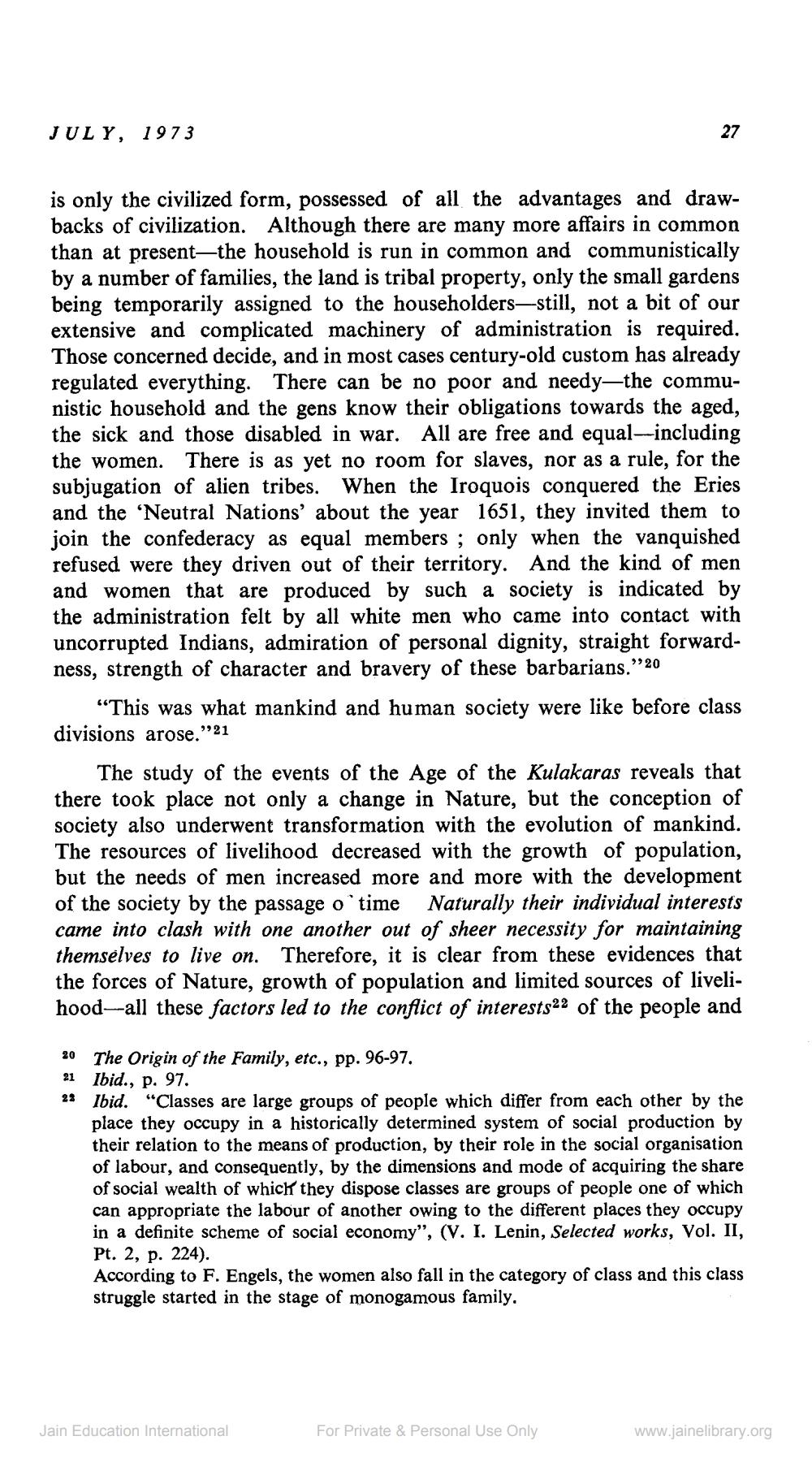________________
JULY, 1973
is only the civilized form, possessed of all the advantages and drawbacks of civilization. Although there are many more affairs in common than at present-the household is run in common and communistically by a number of families, the land is tribal property, only the small gardens being temporarily assigned to the householders-still, not a bit of our extensive and complicated machinery of administration is required. Those concerned decide, and in most cases century-old custom has already regulated everything. There can be no poor and needy-the communistic household and the gens know their obligations towards the aged, the sick and those disabled in war. All are free and equal-including the women. There is as yet no room for slaves, nor as a rule, for the subjugation of alien tribes. When the Iroquois conquered the Eries and the 'Neutral Nations' about the year 1651, they invited them to join the confederacy as equal members; only when the vanquished refused were they driven out of their territory. And the kind of men and women that are produced by such a society is indicated by the administration felt by all white men who came into contact with uncorrupted Indians, admiration of personal dignity, straight forwardness, strength of character and bravery of these barbarians."20
"This was what mankind and human society were like before class divisions arose."21
27
The study of the events of the Age of the Kulakaras reveals that there took place not only a change in Nature, but the conception of society also underwent transformation with the evolution of mankind. The resources of livelihood decreased with the growth of population, but the needs of men increased more and more with the development of the society by the passage o * time Naturally their individual interests came into clash with one another out of sheer necessity for maintaining themselves to live on. Therefore, it is clear from these evidences that the forces of Nature, growth of population and limited sources of livelihood-all these factors led to the conflict of interests22 of the people and
20 The Origin of the Family, etc., pp. 96-97.
Ibid., p. 97.
Ibid. "Classes are large groups of people which differ from each other by the place they occupy in a historically determined system of social production by their relation to the means of production, by their role in the social organisation of labour, and consequently, by the dimensions and mode of acquiring the share of social wealth of which they dispose classes are groups of people one of which can appropriate the labour of another owing to the different places they occupy in a definite scheme of social economy", (V. I. Lenin, Selected works, Vol. II, Pt. 2, p. 224).
According to F. Engels, the women also fall in the category of class and this class struggle started in the stage of monogamous family.
21
23
Jain Education International
For Private & Personal Use Only
www.jainelibrary.org




